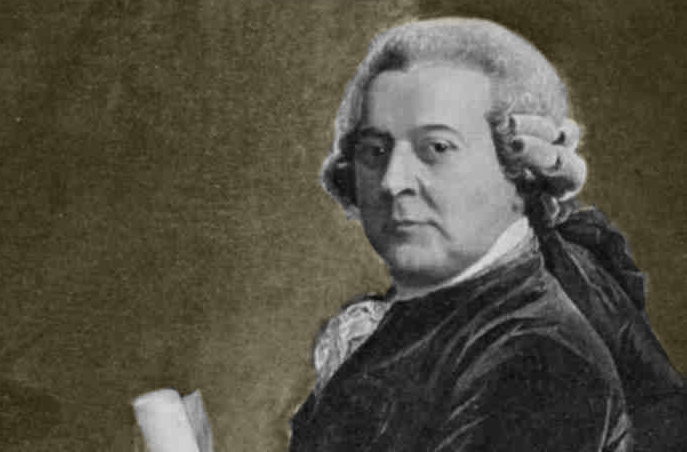
During the early years of the United States, John and Abigail Adams spent much of their time apart: John at work engineering a new, independent America, and Abigail at their family homestead in Braintree, Massachusetts. Accordingly, the pair exchanged some 1,100 letters over the course of their marriage—in fact, modern historians consider this correspondence some of the most pertinent first-hand reportage of the early Revolutionary War. Consider the letter below: with characteristic wit, John tells Abigail of the rebel retreat from New York. John clearly considered Abigail an intellectual equal— such political candor with a woman was unusual in the eighteenth century.
Philadelphia, 8 October, 1776
[To Abigail Adams]
I ought to acknowledge with gratitude your constant kindness in writing to me by every post. Your favor of 29 September came by the last. I wish it had been in my power to return your civilities with the same punctuality, but it has not. Long before this, you have received letters from me, and newspapers containing a full account of the negotiation. The communication is still open, and the post-riders now do their duty, and will continue to do so.
I assure you, we are as much at a loss about affairs at New York as you are. In general, our Generals were outgeneraled on Long Island, and Sullivan and Stirling with a thousand men were made prisoners, in consequence of which and several other unfortunate circumstances a council of war thought it prudent to retreat from that island and Governor’s Island, and then from New York. They are now posted at Haerlem, about ten or eleven miles from the city. They left behind some provisions, some cannon, and some baggage. Wherever the men of war have approached, our militia have most manfully turned their backs and run away, officers and men, like sturdy fellows; and their panics have sometimes seized the regular regiments. One little skirmish on Montresor’s Island ended with the loss of the brave Major Henley and the disgrace of the rest of the party. Another skirmish, which might indeed be called an action, ended in the defeat and shame-ful fight of the enemy, with the loss of the brave Colonel Knowlton on our part. The enemy have possession of Paulus Hook and Bergen Point, places on the Jersey side of North River. By this time their force is so divided between Staten Island, Long Island, New York, Paulus Hook and Bergen Point, that I think they will do no great matter more this fall, unless the expiration of the term of enlistment of our army should disband it. If our new enlistment fill up for soldiers during the war, we shall do well enough. Everybody must encourage this.
You are told that a regiment of Yorkers behaved ill, and it may be true; but I can tell you that several regiments of Massachusetts men behaved ill too. The spirit of venality you mention is the most dreadful and alarming enemy America has to oppose. It is as rapacious and insatiable as the grave. We are in faece Romuli non republica Platonis. This predominant avarice will ruin America, if she is ever ruined. If God Almighty does not interfere by his grace to control this universal idolatry to the mammon of unrighteousness, we shall be given up to the chastisements of his judgments. I am ashamed of the age I live in.
You surprise me with your account of the prayers in public for an abdicated king, a pretender to the crown. Nothing of that kind is heard in this place, or any other part of the continent but New York and the place you mention. This practice is treason against the State, and cannot long be tolerated.
Don’t leave off writing to me. I write as often as I can. I am glad master John has an office so useful to his mamma and papa as that of post-rider.
[John Adams]
From Familiar Letters of John Adams and his wife Abigail Adams. Edited by Charles Francis Adams. Cambridge: The Riverside Press, 1876.
FURTHER “READING”
Here’s a video (courtesy of the History Channel) examining the early days of the Adams’ love.
Listen to this NPR story, in which author Joseph Ellis speaks about his biography of the Adams, First Family.


